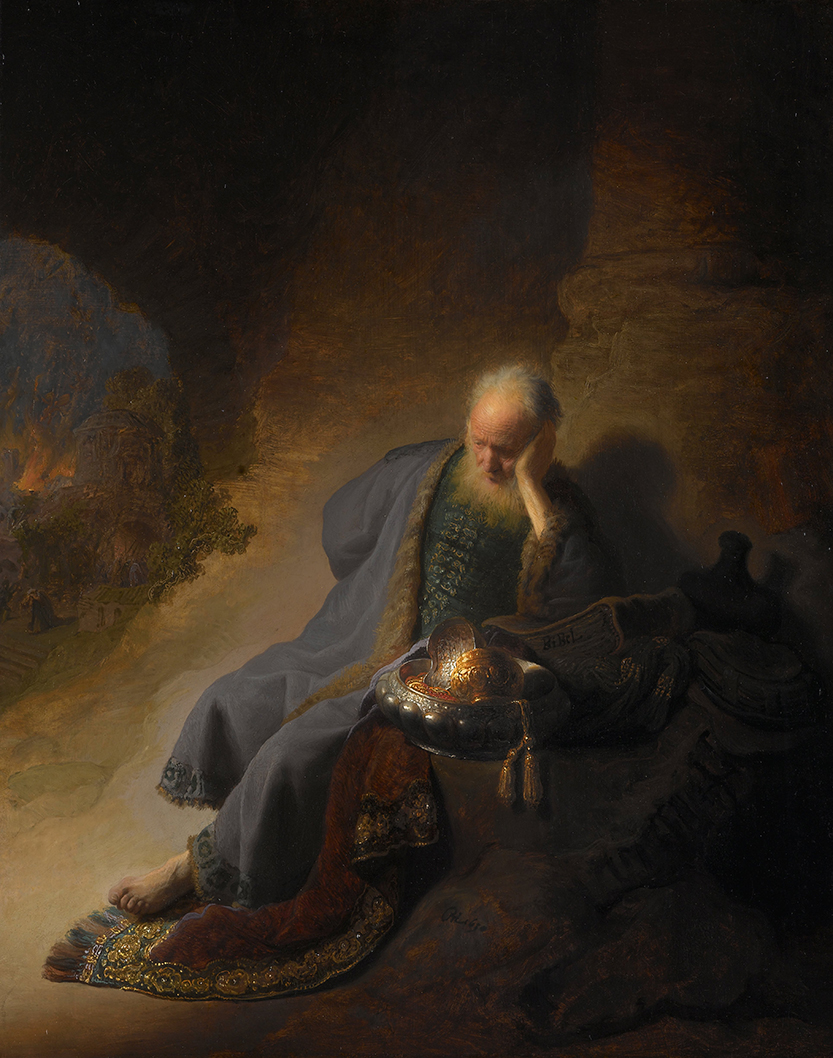The 9th of Av (תִּשְׁעָה בְּאָב – Tisha B’Av) is a day marked by tragic events throughout Jewish history. This date is seen by Jews as a symbol of all the persecution and misfortunes that have befallen the Jewish people.
“Five events happened to our fathers on this day: they were forbidden to enter the land of Israel, the First and Second Temples were destroyed, the fortress of Beitar, the last stronghold of the Bar Kokhba revolt, fell, and Jerusalem was plowed over.”
(Taanit 26b).
What was spoken by the prophet was also fulfilled: “Because of you Zion will be plowed like a field, and Jerusalem will become ruins, and the Temple Mount will become a wooded hill” (Micah 3:12).
Many more difficult trials were destined for the Jews, and all the troubles certainly began on or around the 9th of Av. However, the Jews believe that sometime in the future this day will turn into the greatest holiday. This will happen when all people, to the last one, repent of their sins, and it is on this day that the deliverer – the Messiah – will be born.
But until this commandment is fulfilled, the 9th of Av is a day of mourning and fasting. On this day, Jews do not eat, drink, wear leather shoes or fancy clothes. It is also recommended to abstain from washing and bathing, from marital intimacy and from using perfumes on this day. One should sleep on a hard bed without a pillow and sit only on the floor or on a low chair. And most importantly: reading and studying the Torah is prohibited, since it brings joy, and one should not rejoice on a day of mourning. Only texts related to the expression of grief and sorrow can be read.
In synagogues on the 9th of Av, it is traditional to read kinot, poetic works (parts of the Talmud), which describe the greatest tragedies that have occurred in the Land of Israel, in particular the destruction of the First and Second Temples in Jerusalem, as well as other tragic events that have befallen the Jewish people throughout their history. In Jerusalem, thousands of people go to the Western Wall, where, having settled on the stones, they resort to sorrow and grief, reading “Megillat Eicha” (“Lamentations of Jeremiah”) twice – during evening and morning prayers. In it, the prophet Yermiyahu (Jeremiah), a contemporary of the destruction of the First Temple, laments in profound poetic language this national catastrophe that affected the entire community and radically changed the spiritual life of the Jewish people.
Also on this day, Jews pray for the restoration of the Temple and the coming of the Messiah. Therefore, Tisha B'Av is not only a day of mourning, but also a day of hope. Its meaning is in rethinking the past and gaining spiritual strength. It reminds us of the importance of unity and spiritual stability, faith in restoration and hope for a bright future, even after great losses. As the great philosopher and Talmudist Rabbi Akiva said: “It is only necessary to strengthen faith and hope, and the future will be as it is said in prophecy.”
Pavel Polliul

